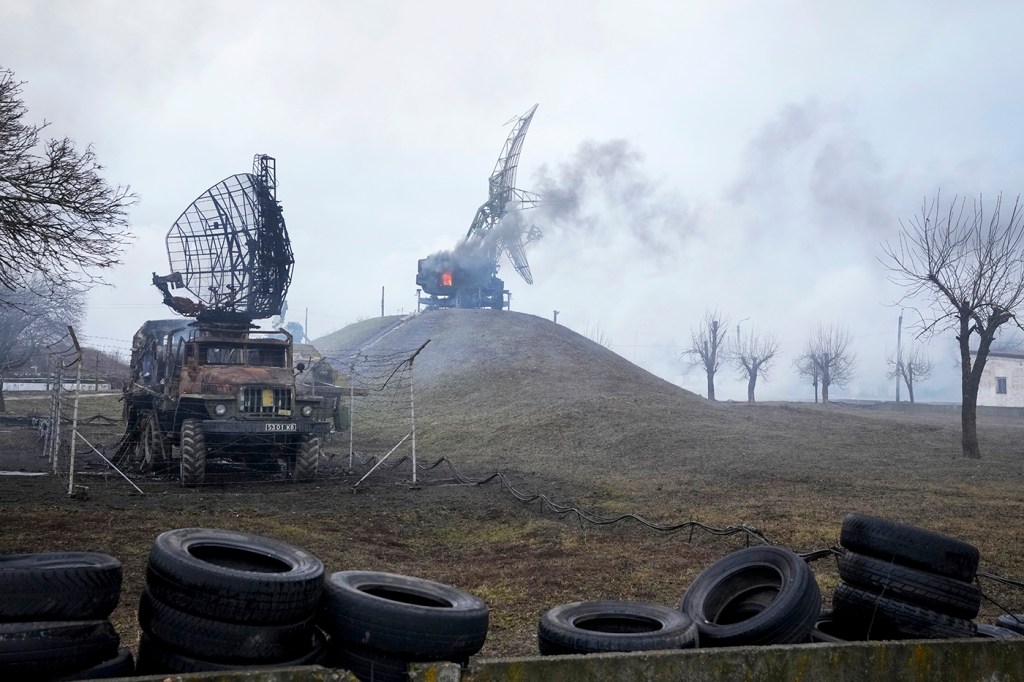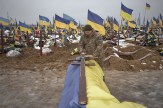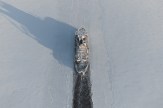What Russia’s invasion of Ukraine means for the global balance of power

This report is part of ongoing coverage of the Russia-Ukraine war. Visit our dedicated page for more on this topic.
Russia has launched a full-scale invasion of Ukraine, provoking a ground war in Europe that is likely to test regional security alliances and agreements in ways not seen in decades.
On Thursday, Russian President Vladimir Putin vowed to, among other things, “demilitarize” the ex-Soviet country, providing the pretext for what he called a “special military operation” that resulted in dozens of Ukrainian military and civilian casualties within the invasion’s first few hours.
The implications of the multipronged invasion for Ukraine, an aspiring North Atlantic Treaty Organization (NATO) member nation, are immense. The attack also could reverberate beyond Eastern Europe and threaten the balance of power globally.
But exactly how the conflict will affect the prevailing “international liberal order” depends, precisely, on how the U.S. and its allies respond, Northeastern experts say. Although the subject of some debate, the international liberal order is a term used by academics, pundits, and political leaders to broadly characterize the set of rules, norms, and institutions around which the post-Cold War world is organized, which broadly favors multilateralism, liberal democratic ideals, and anti-authoritarianism.

Left to right: Assistant Teaching Professor of Political Science Julie Garey; and Mai’a Cross, Edward W. Brooke Professor of Political Science & International Affairs. Photo by Alyssa Stone/Northeastern University and Adam Glanzman/Northeastern University
“Certainly the concerns parallel some of the things we saw during the Cold War, with Russia attempting to assert primacy in the international system,” says Northeastern’s Julie Garey, assistant teaching professor of political science who specializes in international relations.
With Russian aggression now fully underway, international observers have speculated about a potential Chinese takeover of Taiwan, which Beijing has long claimed as its territory.
Fearing a Chinese response, Taiwan increased its government’s alert level on Thursday. Taiwanese President Tsai Ing-wen has said Taiwan in some ways identifies with Ukraine’s position given past “threats and intimidation” from China, according to CNN.
China’s expansion has led to recent crackdowns on democratic forces and ideals in the east, most notably when it seized control of Hong Kong, which had been slipping out of the Chinese Communist Party’s control for some time, says Mai’a Cross, the Edward W. Brooke Professor of Political Science and International Affairs at Northeastern.
“China has been—in a whole range of ways—testing the global order and essentially getting away with it,” Cross says.
But Russia’s invasion of Ukraine hits a lot closer to home. Putin said the invasion is a response to Ukraine’s embrace of NATO and the West—even though the former Soviet bloc country is “no closer to joining” the intergovernmental alliance because of ongoing territorial disputes, among other reasons, Cross says.
In some ways, the conflict is going to be a “test case” to see “how the world holds on to this liberal international order,” she says.
“When great powers try to destabilize the international order, they’re attacking established norms,” Cross continues. “And when norms of proper behavior start to crumble, then it means other powers may feel emboldened to act in this way—and they will only feel emboldened on the basis of the response.”
Thursday afternoon, U.S. President Joe Biden announced new sanctions against Russia, including export blocks on technology, and limits on state-owned banks. Biden said the sanctions would dramatically hinder Russia’s ability to compete and participate in the global economy, as well as limit its military capabilities, according to the Wall Street Journal.
“For weeks we have been warning that this would happen. And now it’s unfolding largely as we predicted,” Biden said.
For media inquiries, please contact media@northeastern.edu.






